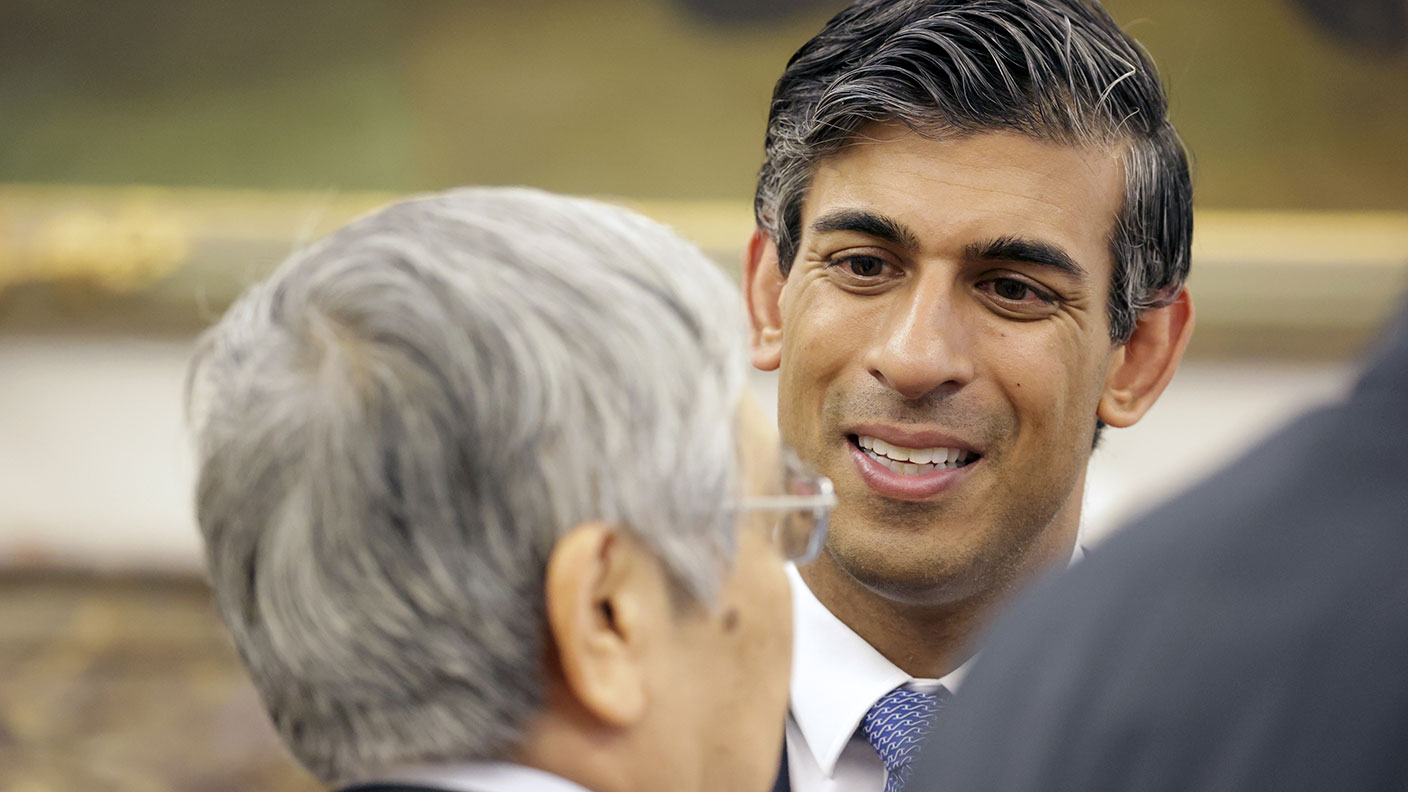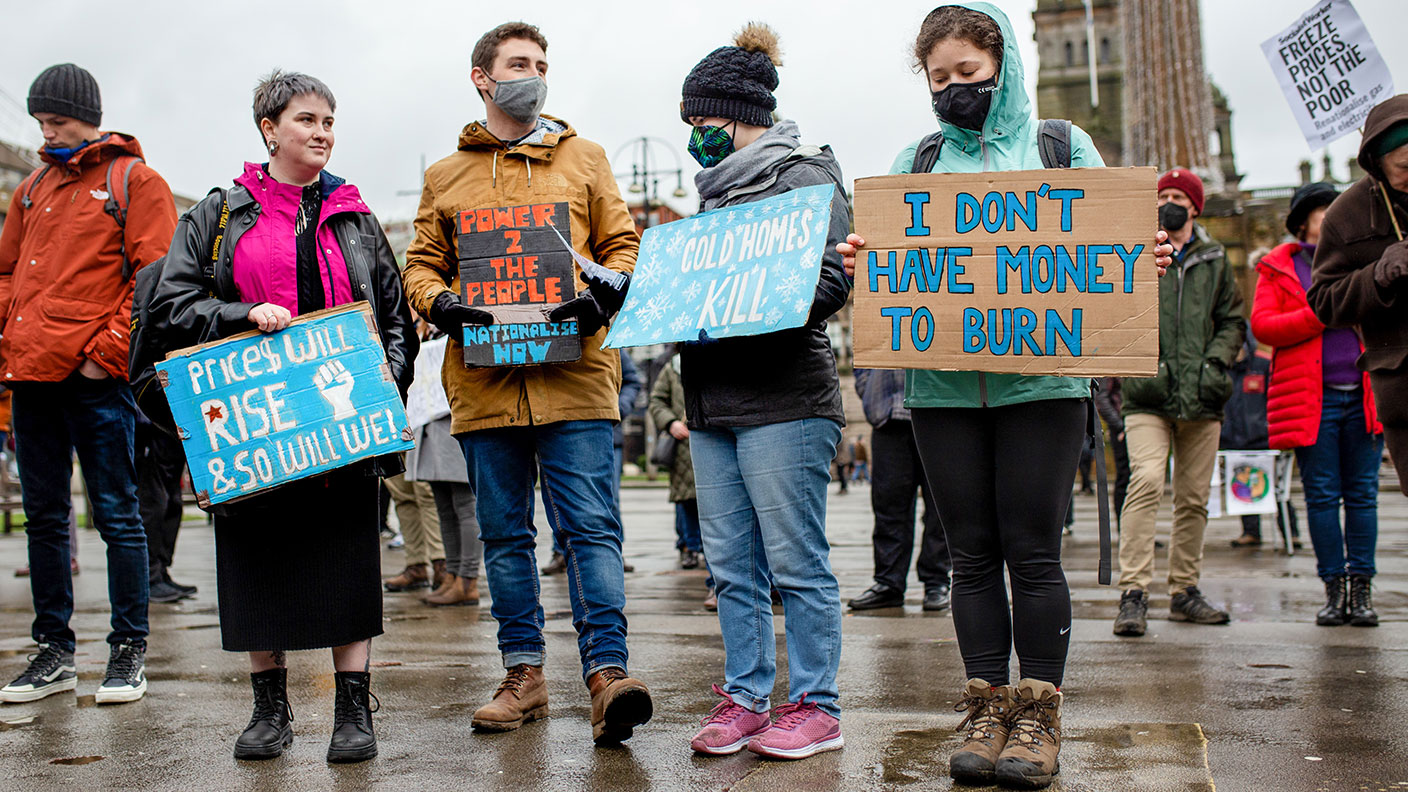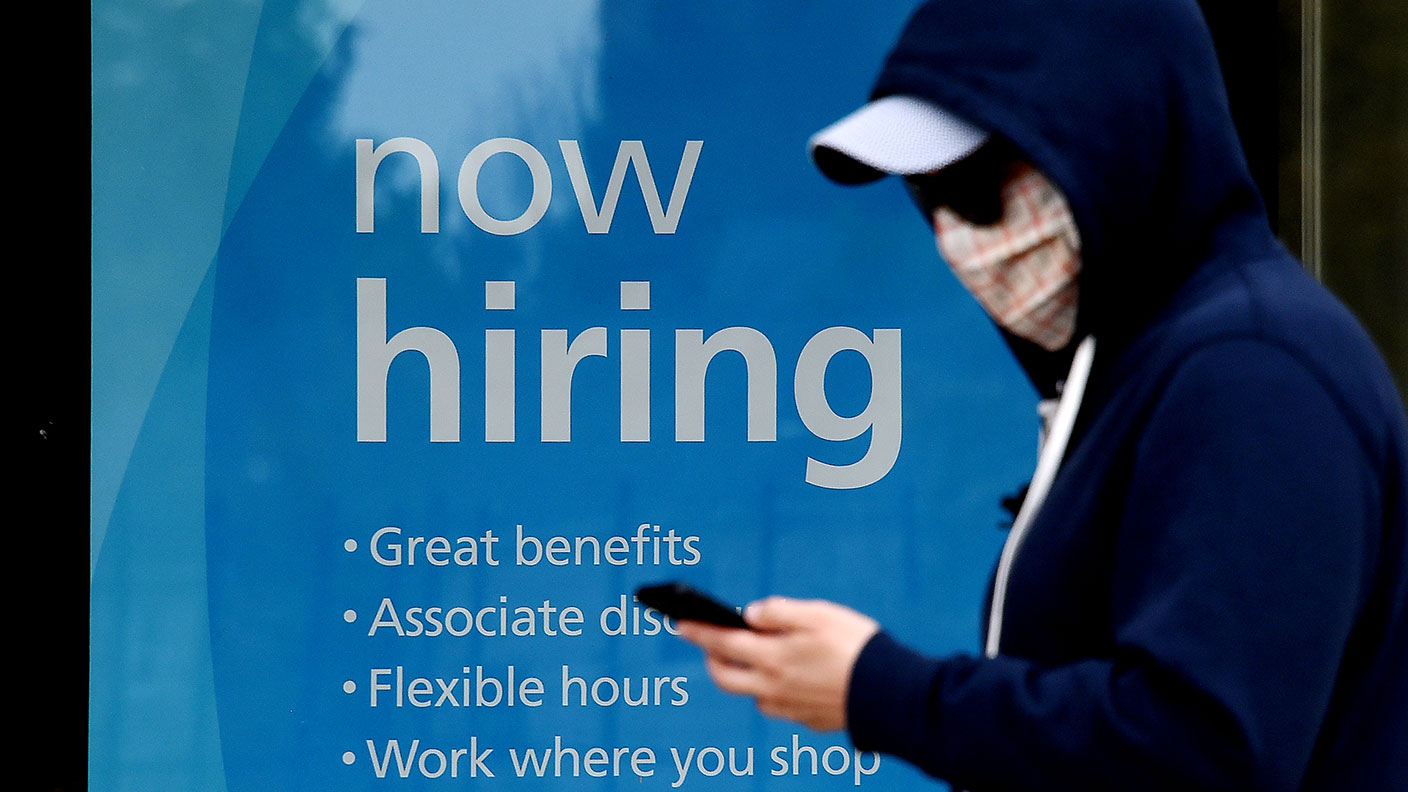Forget rate cuts – what matters most is that the Fed is still printing money
As expected, the Federal Reserve cut US interest rates. And while Fed chief Jerome Powell may talk tough, he's still printing money. John Stepek explains what that means for markets, the US dollar, and for you.

Get the latest financial news, insights and expert analysis from our award-winning MoneyWeek team, to help you understand what really matters when it comes to your finances.
You are now subscribed
Your newsletter sign-up was successful
Want to add more newsletters?

Last night, the Federal Reserve, America's central bank, did exactly what markets expected: it cut interest rates.
The Federal Funds rate will now sit in the range between 1.5% and 1.75%, rather than 1.75% to 2%.
Meanwhile, Fed boss Jerome Powell did exactly what was expected of him, too.
Try 6 free issues of MoneyWeek today
Get unparalleled financial insight, analysis and expert opinion you can profit from.

Sign up to Money Morning
Don't miss the latest investment and personal finances news, market analysis, plus money-saving tips with our free twice-daily newsletter
Don't miss the latest investment and personal finances news, market analysis, plus money-saving tips with our free twice-daily newsletter
He pretended that he probably isn't going to cut rates again.
Powell talks tough but he's still got the market's back
The Federal Reserve under Jerome Powell has adopted a new style.
Where Ben Bernanke and Janet Yellen made it their goal to be a lot more dovish (ie, willing to loosen monetary policy) than markets expected, Jerome Powell wants markets to think that he's a tough guy.
Yellen and Bernanke did everything to make markets feel happy, bar setting an explicit target rate for monthly price appreciation of the S&P 500.
With Powell, by contrast, he wants the market to feel as though every rate cut has been extracted from him through gritted teeth. He wants to be the successor to Paul Volcker, not yet another in a long line of Alan Greenspans.
And so it continued yesterday. But the thing is, as John Authers points out in his newsletter for Bloomberg, even stockmarket day-traders, "mugs though they are", have "learned to anticipate this and price it in".
So, as usual, Powell cut rates. As usual, he made out that he wanted this to be the last rate cut, because after all, the economy is doing fine (GDP growth came in at a mediocre but not awful level of 1.9% in the third quarter) and this is just an "insurance" cut.
Simultaneously, though, he admitted that this is all dependent on things not going pear-shaped. And he also acknowledged that there's no chance he'll be raising interest rates any time soon, not unless inflation really has a rampant burst higher.
So rates will stay low; Powell will keep his fingers crossed; Donald Trump will no doubt keep shouting at him over Twitter; and investors know that, while Powell talks tough, he's basically on the same page as Bernanke and Yellen were if the market throws enough of a strop, more cuts will be forthcoming.
Arguably, what this also does, is to make the non-farm payrolls data out tomorrow even more important than normal. As I always point out, this data is pretty ropey really it's subject to huge future revisions. It doesn't make a lot of sense that it's as market moving as it is.
And this month in particular, it's going to be really quite distorted by the knock-on effects of the strike at car giant GM some forecasters are even expecting a negative figure (ie, job losses rather than gains).
However, the analysts will be poring over it to try to figure out what "underlying" jobs growth is looking like. And if that paints a negative picture, you can expect investors to start hoping for another rate cut in December.
What really matters the Fed is still printing money
So how did the market react? It squeaked higher to a fresh all-time high (Dominic talked about how disconcerting these are yesterday).
What's more important is that the dollar edged lower. That's what really matters at the moment, probably more than any other price in the world, let alone the US.
And this, at the end of the day, is why Powell's hawkish tone is not all that important. Because it's not just the interest rate cuts that matter. What also matters is that the Fed is currently printing plenty of money to help lubricate the joints of the global financial system.
The Fed dismisses talk of this being QE (quantitative easing). But it has roughly the same effect. And, critically, Powell gave no hint that this would be pared back any time soon.
As Will Denyer of Gavekal points out, "basically, the Fed remains in easing mode just like QE1 in 2009, the Fed is now buying assets a relatively fast clip $60bn a month.
"Whatever you call it, this purchase programme should be positive for risk assets and negative for the US dollar as it was in 2009, if on a smaller scale". Overall, says Denyer, "this situation is a bullish combination for risk assets in the US and beyond."
If we can get a weak dollar as well, this could all get very interesting for the more neglected assets out there value, financial stocks, and emerging markets are the first that spring to mind.
More on this in future issues of MoneyWeek magazine and also at our conference in 22 November get your ticket here if you haven't already.
Get the latest financial news, insights and expert analysis from our award-winning MoneyWeek team, to help you understand what really matters when it comes to your finances.

-
 What do rising oil prices mean for you?
What do rising oil prices mean for you?As conflict in the Middle East sparks an increase in the price of oil, will you see petrol and energy bills go up?
-
 Rachel Reeves's Spring Statement – live analysis and commentary
Rachel Reeves's Spring Statement – live analysis and commentaryChancellor Rachel Reeves will deliver her Spring Statement on 3 March. What can we expect in the speech?
-
 Is the US in recession and does it matter?
Is the US in recession and does it matter?Analysis There's a heated debate over whether the US is in recession or not. But why does it matter? John Stepek explains
-
 Has the chancellor done enough to save the UK from recession?
Has the chancellor done enough to save the UK from recession?Analysis UK Chancellor Rishi Sunak announced a new package last week to ease the cost of living crisis. John Stepek explains whether the risk of a UK recession still remains.
-
 Is the UK too open to overseas takeovers?
Is the UK too open to overseas takeovers?Analysis Data shows that the UK is more open to overseas takeovers than other major markets. John Stepek asks: should investors care?
-
 How to manage your money as inflation just keeps rising
How to manage your money as inflation just keeps risingAnalysis Uk inflation is at a 30-year high – and it won't be falling any time soon. So what can you do? John Stepek explains how to manage your money to combat rising prices.
-
 Inflation is going to stay even higher for even longer
Inflation is going to stay even higher for even longerAnalysis Commodity prices – everything from energy to food – are going through the roof. And that’s not likely to end any time soon, says John Stepek. Here's what that means for how you invest.
-
 Inflation is incredibly inconvenient, as we’re all about to learn
Inflation is incredibly inconvenient, as we’re all about to learnAnalysis Inflation doesn't just eat into your wealth, it eats into your time – and can be devastating for those on the lowest incomes. And it's not going away any time soon, says John Stepek. Here's how to invest.
-
 The cost of living crisis is global – US inflation just hit another 40-year high
The cost of living crisis is global – US inflation just hit another 40-year highAnalysis With US inflation running at 7.5%, it’s clear that the cost of living crisis is not confined to the UK. John Stepek looks at the likely reaction from governments and central banks, and what it means for you.
-
 The strong US jobs report is good news for the economy, but not so much for markets
The strong US jobs report is good news for the economy, but not so much for marketsAnalysis January's US jobs report came in much stronger than anyone was expecting, with 467,000 new jobs added to the economy. But things might not be quite as rosy as they seem, says John Stepek. Here's why.